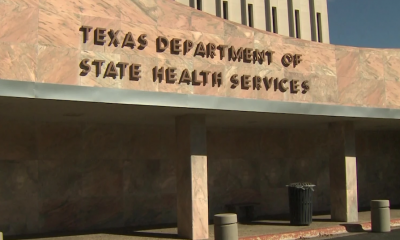Local News
Public Utility Commission agrees to water rate methodology review

PLANO, TX – Yesterday, the Public Utilities Commission of Texas (PUC) ruled in favor of a petition set forth by the cities of Garland, Mesquite, Plano and Richardson for a review of water rates charged by the North Texas Municipal Water District (NTMWD).
Plano Mayor Harry LaRosiliere spoke before the commission on this petition and to ask that their request to move to phase two of the full rate review be granted.
“When you consider our citizens have paid over $275 million collectively for unused water over the past 20 years. The PUC’s expertise, objectivity and oversight will assure that our customers are paying their fair rates and cities, for example, like Mesquite, would not be subject to unfair policies that unilaterally change, causing over payment of capital projects,” LaRosiliere said.
He noted that in his seven years as mayor, six of those years have been spent to attempt to resolve this issue among themselves.
“The contract creates many challenges for us, it is a rate structure that never resets, it penalizes conservation and it lives in perpetuity, and that is why we’re asking for your intervention,” he said.
Mesquite city staff stated that this water rate review is the result of nearly four years of efforts by their staff and the City Council to address the increasing rates paid by Mesquite water customers. The city of Mesquite is continuing to work with their NTMWD partners and other member cities to find a solution that results in a fair rate methodology for all its members.
“This is positive news for Mesquite water customers. We are excited about moving ahead in the journey to arrive at fair rates for Mesquite water customers. This has always been about what is in the best interest of the citizens of Mesquite,” said Mayor Bruce Archer.
Rowlett Mayor Tammy Dana-Bashian also spoke at the PUC meeting and offered another perspective, as Rowlett is the largest customer city of NTMWD.
“In the past 18 years, Rowlett has paid nearly $20 million for over 10 billion gallons of water that was not received or used by the citizens of Rowlett. The high cost of water is the most common complaint we address with our citizens and it correlates directly with the take-or-pay structure in place,” she told the commissioners.
The commissioners concluded the rates are adverse to the public interest and has ordered a cost of service review.
“We are very encouraged by the actions taken this morning by the Public Utility Commissioners,” said Mayor Dana-Bashian. “The city of Rowlett will continue vigorously advocating to ensure the interests of our citizens are appropriately represented.”
Dana-Bashian noted in a video that to finally have the rates reviewed by an independent party is “monumental” and a “major milestone” by their fight isn’t over and is just the first step of what may be “a very long process.”
The cities of Garland, Mesquite, Richardson and Plano released a joint statement Thursday applauding the Public Utility Commission (PUC) for its decision.
NTMWD released a statement from Executive Director Tom Kula that the district looks forward to providing information about the current contract cost-sharing method and related wholesale rate structure.
“The 13 member cities are partners in the regional water system and share those costs based on the contract structure all agreed to in 1988,” Kula stated.
In addition to the four partner cities, members include Allen, Farmersville, Forney, Frisco, McKinney, Princeton, Rockwall, Royse City and Wylie.
While the four established cities look for decreased rates, for still-growing cities like Frisco and McKinney, changes to the system could mean an increase.
In 2015, these four NTMWD member cities joined forces to ask the PUC to step in and evaluate the methodology the NTMWD uses to establish its rates.
The cities purchase water through what has come to be known as the “take-or-pay” system. The system uses the year of highest usage to establish how much water to bill the cities for. In the case of the four cities, that rate was set at least 10 years ago, prior to the drought and water conservation.
The cities’ statement notes that member cities lack the bargaining power to: negotiate new rates; decide which capital improvement projects the district will implement and whether debt will be issued to fund them; weigh in on the growing budget and increasing indebtedness; change district policies such as the rebate; and set customer cities’ rates.
“We support the long-term initiatives of the district, but cannot continue to subsidize the system while waiting for a change in the rate methodology,” the multicity statement said. “The PUC decision appropriately acknowledges that the time for change is now.”
The NTMWD stated it remains “focused on the business of providing safe, reliable drinking water for the 1.8 million customers served by NTMWD.”
“We’ll also continue our focus on keeping rates as low as possible while addressing the challenges and need for new projects for aging infrastructure, changing regulations and growing communities,” Kula said.
“We were created by our member cities and remain open to supporting any requests for changes. This has been a long process and we’re committed to doing our part to strengthen partnerships with our cities to serve the needs of our region.”










